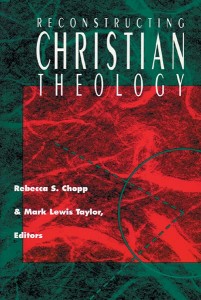
Taylor’s publication here, co-edited with Rebecca S. Chopp, was a collective project with other U.S. theologians, seeking to re-organize (i.e. “reconstruct”) the discipline of Christian theology and the way it understands itself and presents its interests to students and the public. The book is situated in a time of perceived crisis for theology, as the persuasive claims of poststructuralist methodologies, postcolonial perspectives, and aspirations for political and economic liberation came to new prominence in late 20th-century theology.